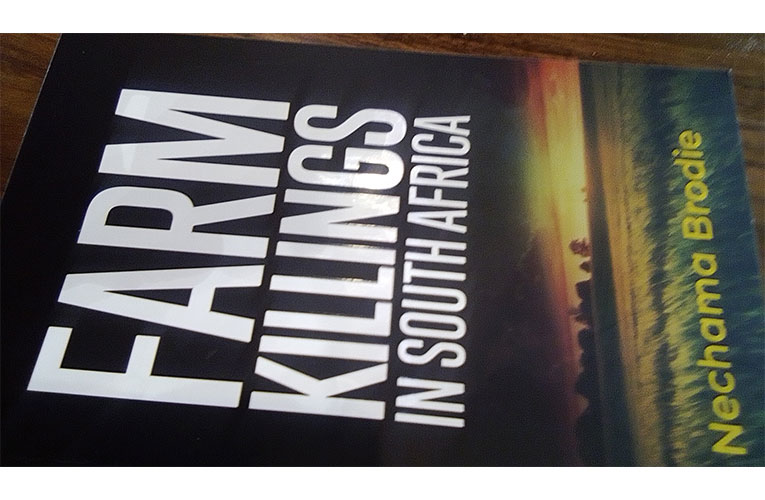Academic and writer Nechama Brodie’s new book Farm Killings in South Africa gets to the heart of these crimes and debunks myth of white genocide
By Edward Tsumele, CITYLIFE/AERTS Editor
Farm killings in South have since the dawn of democracy increasingly become a political football, with white lobby groups and white trade unions, and sometimes opposition parties, claiming political motivation behind these farm attacks.
This has led to some extreme right wing groupings in South Africa and to a certain extent, international nationalist organisations, politicians and media feeding on white fears and conservatism claiming that white genocide is taking place in post-apartheid South Africa. The reality though is that there is neither white genocide, nor are these frequent attacks politically motivated.
These attacks mainly carried out almost always predominantly by criminals coming mainly from poor informal settlement communities neighbouring these farms are motivated by pure theft. An ew book by journalist, writer, academic and violence researcher Nechama Brodie claims.
Well researched and full of statistical data to back up its claims, the book goes further to suggest that the state’s almost indifferent response to the farm killings , especially the lack of enthusiasm to collate statistics on farm killings is not helpful in staving these baseless claims about political motivation in these killings.
The lack of official statistics about these killings and the ambiguous definition of what constitutes farm killings is not making matters any easier to get to the bottom of this emotive matter in South Africa, Brodie concludes. In fact this vacuum of official data on such killings and the lack of a definitive definition of what constitutes a farm killing or attack, has created a situation exploited by white farming organisations and white trade unions to collect their own statistics that at best are often faulty, unverified , not trust worthy, and at worst, deliberately distorted to fit the incorrect narrative of a white genocide currently, silently taking place in South Africa.
The book dismisses the conspiracy of a white genocide in South Africa. In fact the author points out that white homicide only constitutes half a percent of homicide in South Africa. In fact overall, black people are the most affected by crime in the country, with street crime constituting the biggest percentage of crime in the country.
But wealthier communities, such as the middle class in living in the suburbs and the farming community tend to receive a disproportionate bulk of media attention as compared to black victims of crime. It is this media bias and prejudice against the poor and almost always black, that tends to wrongly suggest that white farmers and white people are the main victims of crime, the book says.
In fact Brodie maintains that in order to fully understand the violence that takes place on farms, it is equally important to link it to the historical violence that has formed part of the violence on farms since the dispossession of black people of their land by Westerners, going back centuries. The taking of indigenous black people’s land was almost always violent, and therefore breeding an intergenerational culture of resentment and violence, the book infers. But often white lobby groups promoting the narrative of crime with white people as victims in general and in farm attacks and killings, often omit that important historical connection to the current violence.
The book however calls on the state to regard farm killings as a serious issue to pay special attention to. In the process the state needs divorce its judgment in looking at this issue from the rumblings of extremist white groupings, opposition political parties,’ international white nationalist groups and individuals, and racists on the issue The issue of violence and crime affecting all communities needs all South Africans, irrespective of colour to come together and deal with it, without looking at the issue from a race based lens,” Brodie advises.
Whether you would not want to hear what she says, this book however is an important piece of literature on a current issue that tends to divide society on racial lines. It is a crucial nook to read, especially for those who want to genuinely understand the hot issue of crime and violence in society in general, as well as the conspiracies flying around left, right and centre about the alleged white genocide ostensibly taking place in South Africa.
.Farm Killings in South Africa is published by Kwela Bools and is available at bookstores nationwide.










